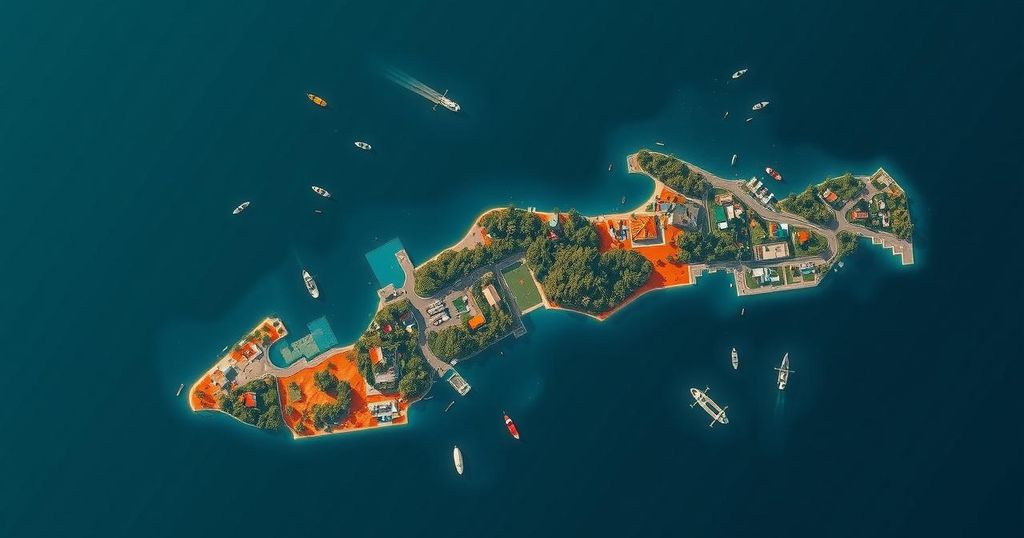Weather
World news
ASIA, CUBA, EUROPE, GERMANY, GULF OF MEXICO, HURRICANE, HURRICANE BERYL, ISRAEL, JOSE MARTI INTERNATIONAL AIRPORT, MIGUEL DIAZ - CANEL, NATIONAL HURRICANE, NATURAL DISASTER, NATURAL DISASTERS, NHC, NORTH AMERICA, PINAR DEL RIO, POWER OUTAGES, RAFAEL, TRUMP, UNITED, UNITED STATES NATIONAL HURRICANE CENTER, YD, YDAEL PEREZ BRITO
Li Chen
0 Comments
Cuba Faces Nationwide Blackout Following Hurricane Rafael’s Devastation
Cuba has experienced its second islandwide power outage in two weeks following Hurricane Rafael’s destructive passage. The storm, classified as Category 3, devastated agricultural areas, particularly in the tobacco-growing regions. Despite government efforts to mobilize for recovery, public confidence is waning regarding the ability to restore essential services and respond to natural disasters effectively.
Cuba faces a significant crisis following its second extensive power outage in just two weeks, attributed to Hurricane Rafael, which recently traversed the western regions of the island, causing extensive damage. The hurricane, classified as a Category 3 storm, brought sustained winds of 185 km/h (115 mph) that devastated agriculture by destroying crops and uprooting trees. As the storm moved into the Gulf of Mexico, it lost strength, but the destruction it caused prompted a nationwide blackout affecting the island’s 10 million inhabitants. On Thursday, a sense of despair blanketed the capital, Havana, as residents discovered relatively minor flooding and widespread destruction. Many businesses remained closed, as transport was slowly restored post-hurricane, and flights were grounded at both Havana’s José Martí International Airport and Varadero beach resort. Farmers had taken precautionary measures to safeguard stored produce, particularly 8,000 tonnes of valuable tobacco leaves, but damage to agricultural infrastructure was substantial, raising concerns about food supply. In response to the disaster, Cuban President Miguel Díaz-Canel mobilized military resources for recovery efforts, claiming that protective measures had been enacted to safeguard citizens and properties. However, the president’s reassurances did little to ease public anxieties about the government’s ability to respond effectively, as many residents expressed frustration over the economic difficulties and the recurring issue of power outages stemming from aging infrastructure. The hurricane season intensifies concerns as Hurricane Rafael marks the 17th named storm this year and highlights the growing frequency of severe weather events affecting Cuba, as noted by forecasters predicting an above-average hurricane season for 2024. The continual devastation underscores the vulnerability of Cuba’s public infrastructure and raises questions about the nation’s resilience against natural disasters amid deteriorating economic conditions and limited aid from allies such as Venezuela. The plight of individuals, such as Marta Leon Castro, who lamented her damaged home and lack of immediate assistance, reflects the broader challenges facing many Cubans in the aftermath of the storm. Desperation pervades as citizens possess limited confidence in their government’s disaster response capabilities, particularly following the recent rounds of blackouts.
Cuba has a history of enduring the harsh impacts of hurricanes, particularly due to its geographic location. The nation is prone to severe weather events during the hurricane season, which typically runs from June to November. The effects of hurricanes are often exacerbated by an aging infrastructure and insufficient resources for maintenance and repair. Recent storms, including Hurricane Oscar, have compounded existing vulnerabilities, leading to widespread power outages and significant agricultural loss. Economic constraints, primarily influenced by external relations with the United States and the socio-economic instability in allies like Venezuela, further complicate the government’s ability to respond to such crises effectively. Thus, natural disasters present not only immediate physical dangers but also long-lasting socio-economic struggles for the Cuban population.
In summary, the aftermath of Hurricane Rafael has left Cuba grappling with a comprehensive power outage, accentuating the nation’s persistent vulnerabilities to severe weather. The widespread destruction caused by the hurricane has not only impacted agricultural sectors but has also reignited concerns regarding the government’s preparedness and response capacities in the face of recurrent natural disasters. As such challenges continue to mount, the resilience and welfare of the Cuban population remain a pressing concern amidst ongoing economic difficulties and infrastructure inadequacies.
Original Source: www.aljazeera.com



Post Comment